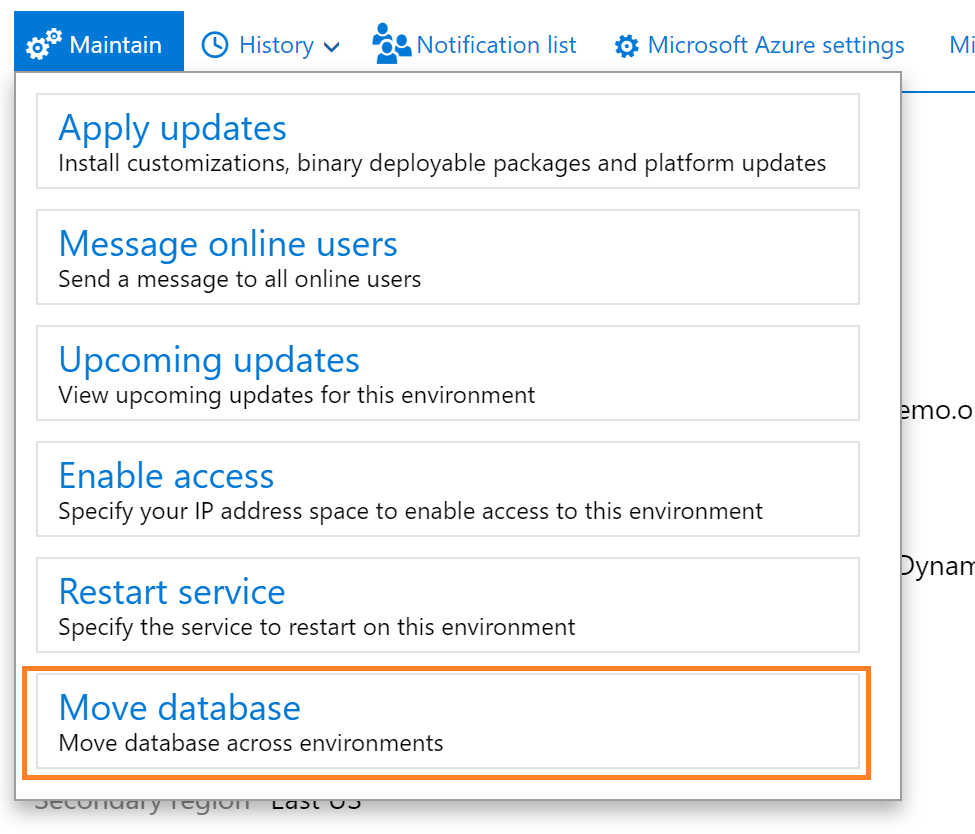Hi Daxer's !!!
I'm very glad to explore my knowledge on Microsoft Dynamics Ax .
-- "Gaining knowledge is the first step to wisdom,
Sharing knowledge is
first step to Humanity !!!
String Functions in AX 2012
1.strAlpha Function:
Copies only the alphanumeric characters
from a string.
Syntax:
str strAlpha(str _text)
Example:
info(strAlpha("Shiva89^&"));
Op:shiva89
2.strCmp Function :
Compares two text strings.
Note: 0 if the two strings are
identical, 1 if the first string sorts earlier, or -1 if the second string
sorts earlier.
Syntax:
int strCmp(str text1, str text2)
The comparison performed by this method is case-sensitive.
Example:
print strCmp("shiva","shiva");
pause;
Op:
returns 0 if two strings are identical
print strCmp("shiva","SHI");
pause;
Op:
returns 1 if first string is executed first;
print strCmp("sss","ggg");
pause;
Op: returns 1 if the second string executed
first;
print strCmp("hhh","ooo");
pause;
Op: returns -1 if the second string executed first;
3.strColSeq Function:
Converts all
uppercase characters to lowercase characters and also converts all special design characters like (ÁÎ to ai) to lowercase characters
Syntax:
str strColSeq(str text)
Example:
info(strColSeq("AbçDËãBCdé"));
Op:abcdeabcde
4.strDel Function:
Creates a copy of a
string with the specified substring removed.
Syntax:
str strDel(
str _text,
int _position,
int _number)
Example:
using strDel function
Note: removes 2 letters from 4th letter onwards
info(strDel("ShivaKumar",4,2));
Op:ShiKumar
info(strDel("ShivaKumar",4,-3));
Op: SaKumar
Parameter
|
Description
|
_text
|
The string to copy from
|
_position
|
The position at which to begin ignoring characters
during the copy.
|
_number
|
The number of characters to ignore.
A minus sign in front of the _number parameter indicates that the (_number-1) characters before the character at
the_position parameter are to be removed along
with the character at the _position.
|
5.strFind Function:
Searches a string
for the first occurrence of one of the specified characters.
Syntax:
int strFind(
str _text,
str _characters,
int _position,
int _number)
Parameter
|
Description
|
_text
|
The string to
search.
|
_characters
|
The characters for
which to search.
|
_position
|
The position in the
string where the search begins.
|
_number
|
A signed number that
indicates the direction of the search and how many positions to search in the
string.
|
Example:
print strFind("shivaKumar","v",1,10);
pause;
OP: returns 4
print strFind("shivaKumar","i",6,-4);
pause;
OP: returns 3
Note: returns 4 and 3
according to the position of given value;
6.strFmt Function:
Formats the
specified string and substitutes any occurrences of % n with the nth argument.
Syntax:
str strFmt(str _string, ...)
Example:
static void
Shiv_StringsFunction(Args _args)
{
str Ax= 'Axapta';
str W ='World';
;
{
info(strFmt("
Welcome to %1,%2",Ax,w));
}
}
Op: Welcome to Axapta,World
7.strIns Function:
Builds a string by
inserting one string into another.
Syntax: str strIns(str _text1, str _text2, int _position)
Example:
static void
Shiv_StringsFunction(Args _args)
{
info(strIns("shKumar","iva",3));// Note:Inserting string
from 3rd letter onwards
}
Op:shivakumar
8.strKeep Function:
Builds a string
from only the characters in the first input string that are specified to be
kept by the second string.
Or
Shows only
specifield value of string
Syntax: str strKeep(str _text1, str _text2)
Example:
info(strKeep("shivaKumar","vaK"));
Op: VaKa
9.strLen Function
Calculates the
length of the specified string.
Syntax: int strLen(str text)
Example:
print strLen("shiva");
pause;
Op:5
10.strLine Function:
Retrieves a single
line from a string that spans multiple lines.
Syntax:
str strLine(str string, int count)
Example:
str Ax="Hello\nDaxers\r\n@India\n@dhanush";
{
info(strLine(Ax,0));
info(strLine(Ax,1));
info(strLine(Ax,2));
}
Op:
Hello
Daxers
@ India
11.strLTrim Function:
Removes leading
blanks from a text string. Or removes
left side space of the string
Syntax:
str strLTrim(str text)
Example:
info(strLTrim(" Shiva "));// op:Shiva
12.strRTrim Function :
Removes the trailing
space characters from the end of a string. Or removes right side space of the
string value
Syntax: str strRTrim(str _text)
Example:
info(strRTrim(" Shiva "));// op: Shiva
13.strLwr Function:
Converts all
letters in the specified string to lowercase.
Syntax:
str strLwr(str _text)
Example: info(strLwr("SHiVa")); Op: shiva
14.strNFind Function:
Searches a portion
of a text string for the first occurrence of a character that is not included
in the specified list of characters.
Syntax:
int strNFind(
str _text,
str _characters,
int _position,
int _number)
Example:
print strNFind("shiva","shva",1,5); //op:
returns 3(position of i)
pause;
print strNFind("shiva","shIva",1,5); //op:
returns 0(position of i)
pause;
15.strPoke Function:
Overwrites part of
a string with another string.
Syntax:
str strPoke(
str _text1,
str _text2,
int _position)
Example:
info(strPoke("shiva","kumar",4)); //op:shivkumar
16.strPrompt Function:
Appends to a string the specified
number of period characters followed by a colon and space character.
Syntax:
str strPrompt(str _string, _int len)
Example:
print strPrompt("Shi",-1);
//Returns "Shi ".
print strPrompt("Shi",3);
//Returns "Shi ".
print strPrompt("Shi",4);
//Returns "Shi: ".
print strPrompt("Shi",5);
//Returns "Shi.: ".
print strPrompt("Shi",6);
//Returns "Shi..: ".
pause;
17.strRem Function:
Removes the
characters specified in one string from another string.
Or
Removes the
specified value of a string
Syntax:
str strRem(str text1, str text2)
Example:
io(strRem(nf"shiva","va"));
//op:shi
18.strRep Function:
Repeats a string of
characters.
Syntax:
str strRep(str _text, str _number)
Example:
info(strRep("shiva",5));
//Op:shivashivashivashivashiva
19.strScan Function:
Searches a text string
for an occurrence of another string.
Syntax:
int strScan(
str _text1,
str _text2,
int _position,
int _number)
Example:
print strScan("shivaKumar","h",9,-10);//op:2
pause;
print strScan("shivaKumar","iva",1,10);//op:3
pause;
20.strUpr Function:
Converts all the
letters in a string to uppercase.Syntax:
str strUpr(str _text)
Example:
info(strUpr("SHiva"));// op:SHIVA
21.subStr Function:
Retrieves part of a
string. Or retrieves we required value a part from the string
Syntax: str subStr(str _text, int _position, int _number)
Example:
info(subStr("ShivaKumar",3,6));//op:vakum
Note:Retrives String value from 3rd
value onwards up to 6th
letter
info(subStr("ShivaKumar",6,-4));
Note: Retrives
String value from 6th value towards to 4th letter
22.match Function:
Searches for a
string or expression within another string.
Syntax:
int match(str pattern, str text)
Example: print match("<shi","shivakumar");//op:
returns 1
pause;
print match("^shi","shivakumar");");//op: returns 1
pause;
Keep Daxing !!!
HaPpYyY Daxing :)


